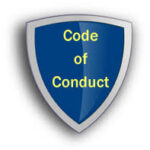
Emphasis is placed on standards of student conduct rather than on limits or restrictions. Guidelines and regulations governing student conduct are developed by representatives of the faculty, staff, and administration.
Forms of Student Misconduct Subject to Disciplinary Action
1. All forms of dishonesty, including cheating, plagiarism, knowingly furnishing false information to instructors or administrators, and the forgery, alteration, or use of course documents or instruments of identification with the intent to defraud.
2. All forms of plagiarism including the appropriation of passages, either word for word or in substance, from the writings of another and the incorporation of those passages as one’s own in written work offered for credit. Elite Learning assumes that the written work offered for credit is the student’s own unless proper credit is given the original author by the use of quotation marks and footnotes or other explanatory inserts.
3. All collaboration with another person in the preparation or editing of notes, themes, reports, or other written work offered for credit is prohibited unless such collaboration has been specifically approved in advance by the instructor. Examples of collaboration include extensive use of another’s ideas for preparing a creative assignment and receiving undue assistance in the preparation or editing of written materials.
4. Giving or receiving, offering, or soliciting information on any quiz, test, or examination is prohibited; this includes the following:
(a) Copying from another student’s paper.
(b) Use of prepared materials during the examination.
(c) Collaboration with another student during the examination.
(d) Buying, selling, stealing, soliciting, or transmitting the contents of an examination.
(e) Substituting for another person during an examination or allowing such a substitution for one’s self.
(f) Bribery of any person to obtain examination information.
Misconduct Guidelines – Online Learning Specifics
1. Students who gain access to user accounts other than their own by using various technologies or through other dishonest means may be suspended from the program. See suspension outcomes under the Sanctions section of this document.
2. Students who intentionally or unintentionally view others’ personal information, grades, or other “locked” areas of user accounts may be suspended from the program. See suspension outcomes under the Sanctions section of this document.
3. Students are expected to perform all work themselves. If it is discovered and proven that any student is allowing others to access their user account and complete assignments, tests, etc., he or she may be suspended at the discretion of the administrators.
4. Administrators retain the right to use any and all tracking technologies available to them within student civil rights. This will ensure that students are presenting assignments in an honest manner.
Sanctions:
The following sanctions may be imposed:
Admonition: An oral or written statement to a student that he/she is violating or has violated program rules and may be subject to more severe disciplinary action.
Suspension: Exclusion from participating in the program as a student for a definite period of time. Suspension will result in a zero grade.